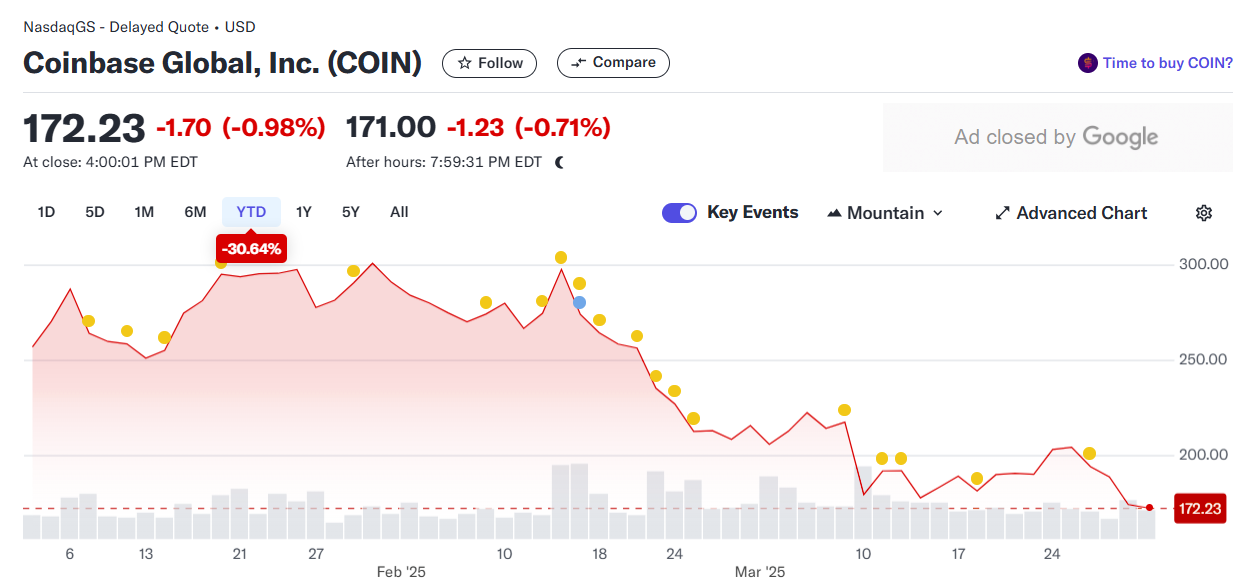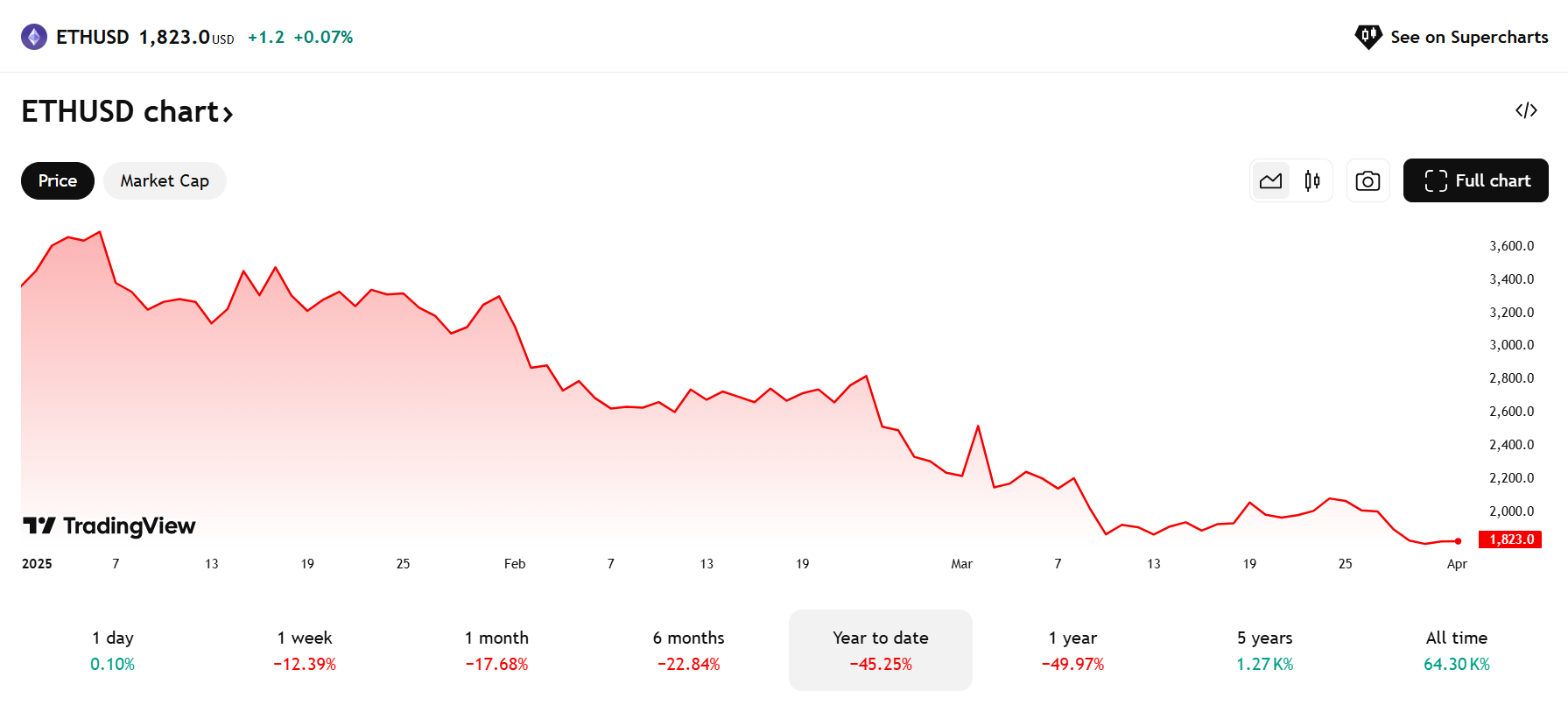Key Takeaways
- Coinbase shares fell 31%, marking their steepest drop since the FTX collapse in late 2022.
- The crypto downturn is driven by macroeconomic concerns, including US trade tensions and recession fears.
Share this article
Coinbase (COIN) stock took a hit this quarter, falling by around 31%. It represents its worst performance since the FTX meltdown in late 2022, according to Yahoo Finance data.


The drop mirrors the struggles of Bitcoin, which is set to close one of its weakest quarters with an 11% year-to-date loss, despite a 16% gain over the past year, according to TradingView.
Bitcoin-tied stocks like Coinbase often move in lockstep with Bitcoin’s price, a correlation evident when the leading crypto stumbles.
For Coinbase, exposure to altcoins like Ether—hit harder than Bitcoin—has amplified its losses, given that its revenue is tied to trading volumes across multiple tokens.
Ether has crashed 45% so far this year, now hovering around $1,800.


The pain extended beyond Coinbase; Bitcoin miners also faced sharp declines this quarter.
MARA Holdings (MARA) shed 31%, Riot Platforms (RIOT) fell over 30%, and Core Scientific (CORZ) plummeted 48%. Meanwhile, CleanSpark (CLSK) lost 27%, while Hut 8 (HUT) slumped 43%.
Strategy (MSTR), heavily invested in Bitcoin, saw a modest dip.
In contrast, Robinhood Markets (HOOD) defied the gloom, soaring nearly 12%.
Analysts warn that worse may be ahead as President Trump’s “Liberation Day” looms on April 2, when aggressive tariffs are set to take effect.
Investor sentiment is still weighed down by macro concerns, despite the crypto industry’s legislative headway in Washington. Tariffs, potential trade wars, and recession fears are driving a retreat from riskier assets.
“Since the US Presidential inauguration, the outlook of Bitcoin has changed from a trusted hedge against inflation to a more risk-on asset with a longer-term high growth prospect,” said Innokenty Isers, Chief Executive Officer at Paybis, in a recent comment.
According to Isers, Bitcoin might not be the preferred inflation hedge for risk-averse investors in the current economic climate.
He suggested that the ongoing trade war and the potential for rising inflation could reduce the amount of money allocated to Bitcoin as a safe-haven asset.
Share this article


